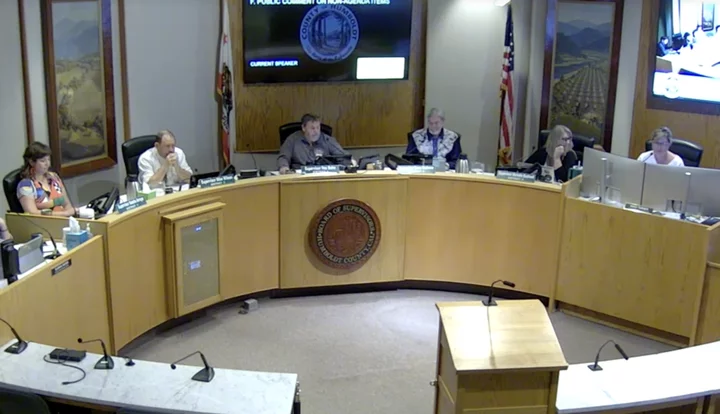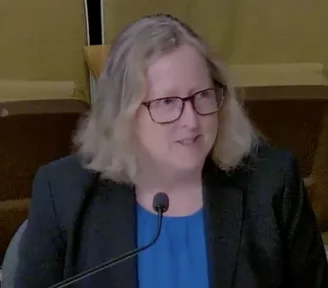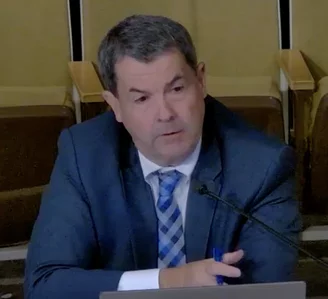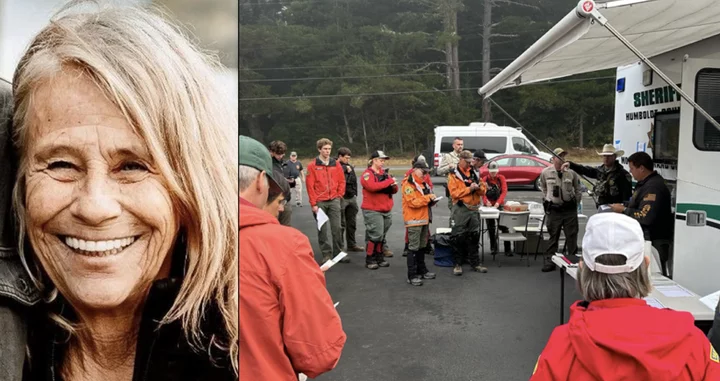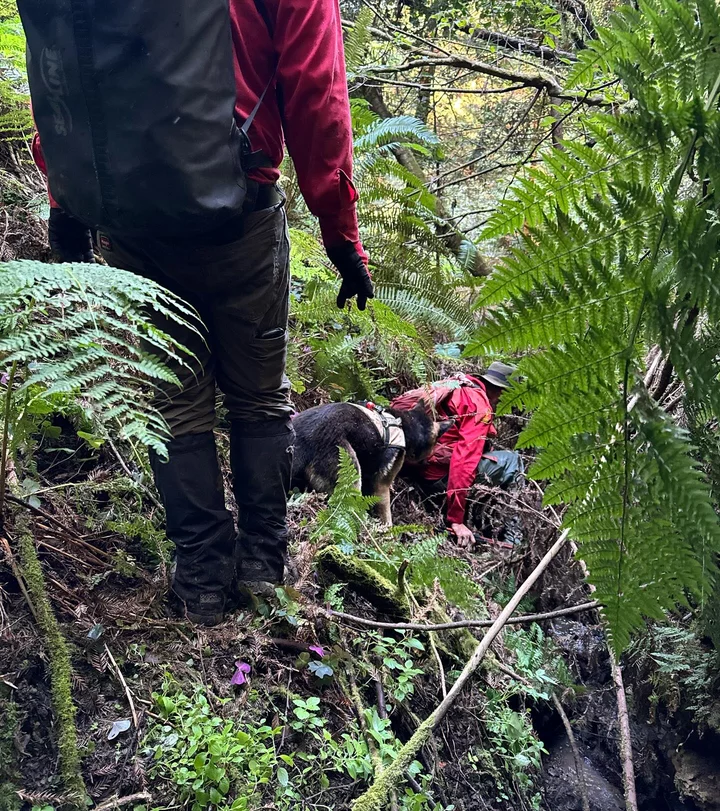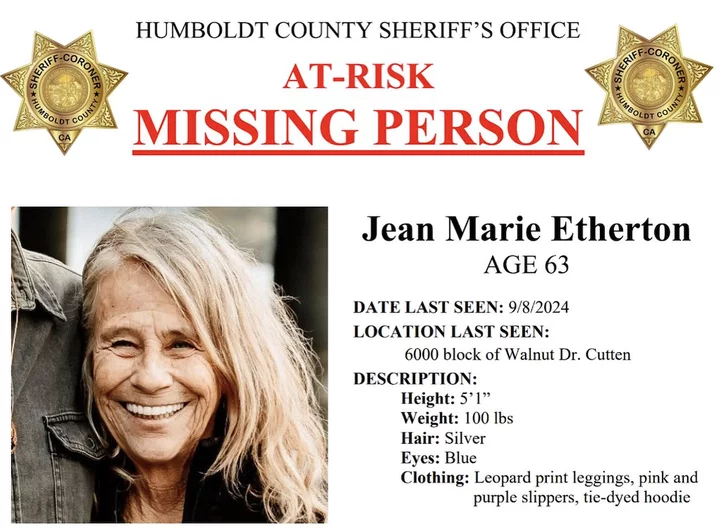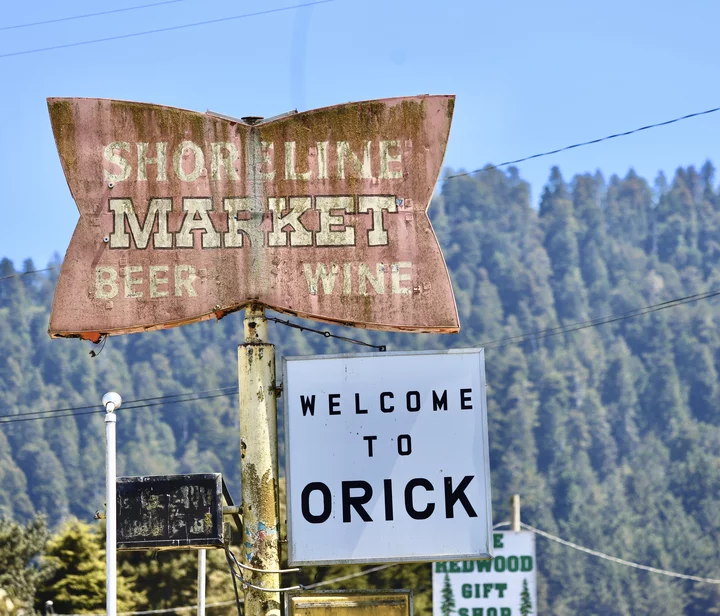Winter Fire Safety Tips! Or, How to Lessen Your Chances Of Burning Your Own Home to the Ground During the Cold Weather Months
LoCO Staff / Wednesday, Sept. 11, 2024 @ 10:38 a.m. / Fire
Press release from the Arcata Fire District:
As winter temperatures approach, the use of fireplaces, wood stoves, space heaters, and other alternative heating methods tends to rise. This increase in heating appliance use can lead to a higher incidence of residential fires during the colder months. To help keep your home safe from fire this winter, consider these essential fire safety tips.
Some safety tips that apply to all types of heating appliances:
- Do not place floor coverings, clothing, or furniture over floor furnaces.
- Move combustibles away from floor and wall furnaces. This includes furniture.
- Have your furnace cleaned and serviced to ensure safe and efficient operation.
- Inspect the walls and ceiling near the furnace or heater; if the wall is hot to the touch or discolored, discontinue use immediately, and have the appliance checked.
- If you heat with wood, move combustibles at least 36” away from the stove or fireplace. Again, this applies to furniture as well.
- Never discard hot ashes inside or near the home. Place them in a metal container outside and well away from the house or other buildings.
- Have your stove pipe, chimney, or flue cleaned and inspected prior to use.
We aim to prevent furnace, heater, and wood stove fires this year and beyond by reminding our communities of the steps necessary for safe appliance use. If you have any questions, please reach out to the Arcata Fire District at 707-825-2000.
BOOKED
Today: 8 felonies, 8 misdemeanors, 0 infractions
JUDGED
Humboldt County Superior Court Calendar: Today
CHP REPORTS
Sr162 / Biggar Ln (HM office): Trfc Collision-Unkn Inj
ELSEWHERE
Governor’s Office: Governor Governor Newsom proclaims Ronald Reagan Day
Governor’s Office: California celebrates 129 new CHP officers ready to protect and serve the Golden State
Governor’s Office: Governor’s Office demands Kristi Noem learn to Google before sending stupid letters: California works with ICE to deport criminals
California College Students Want More Online Courses, but Can They Catch Up to In-Class Peers?
CalMatters staff / Wednesday, Sept. 11, 2024 @ 7:25 a.m. / Sacramento
Illustration by Gabriel Hongsdusit, CalMatters
Despite the Los Angeles Harbor College student ID that proves otherwise, Citlali Gonzalez hasn’t felt like a college student.
Yes, she recently finished her associate degree in human services and, yes, she is transferring to Cal State Dominguez Hills this fall. Still, as someone who for the past year has been mostly taking online classes, college doesn’t feel like the social experience she’d imagined fresh out of high school five years ago.
Like Gonzalez, roughly half of California community college students are taking classes online — a significant shift compared to the years before the COVID-19 pandemic. While community college data shows that its students perform worse in online courses compared to in-person ones, many college officials defend the shift to online learning.
The “modality,” whether a class is in-person or online, is irrelevant, said Rebecca Ruan-O’Shaughnessy, who oversees educational services and support for the California Community Colleges Chancellor’s Office. She said what matters is “engagement” — the degree to which students interact with their peers and their professors.
Nationally, the federal government is concerned about a lack of oversight for the growing number of online courses. The California State University and University of California systems have also increased the number of online classes to varying degrees, though research on online success rates at four-year universities is limited.
In July, the U.S. Education Department proposed new rules that would call on colleges and universities to collect more data about online courses, including students’ attendance. “We have been hampered in the ability to fully understand students’ participation in distance education, account for differences in outcomes and conduct oversight, accurately measure taxpayer expenditures on distance education programs, and gauge the success of such education,” wrote the department.
The California Community Colleges Chancellor’s Office responded to the regulations by submitting a public comment document, saying they hope the department will consider the “new costs” to develop the infrastructure to collect the data. The UC also answered publicly, saying data collection might create “confusion and stymie the development of future online education programs.” In an email to CalMatters, the Cal State system stated they were “generally in support” of the regulations and trust that the federal department will consider the potential impact on diverse student populations juggling different responsibilities.
Meeting students ‘where they are’ means going online
For 23-year-old Gonzalez, who works 40 hours a week at her day job, the convenience of online education is paramount. “It works for my schedule,” she said, adding that it’s allowed her to make time for things that help her well-being, like Jiu Jitsu. Gonzalez said that the best professors structured their courses in bite-sized pieces by breaking up lectures into shorter videos and adding quizzes after each reading. They were also quick to respond to emails.
There are typically two kinds of online courses: synchronous classes, where the professor and students meet in real-time, and asynchronous classes, where students watch pre-recorded videos or otherwise learn independently. Community college data of the past few years shows that students in synchronous classes have consistently performed better than asynchronous ones. Historically, students in synchronous classes get more interaction with their professors and that “real-time engagement” can translate into better performance, said Ruan-O’Shaughnessy.
Nonetheless, asynchronous classes are popular among students and, according to state data, these classes outnumber synchronous ones by more than 170,000 course offerings. If students want these courses, then colleges need to “meet them where they are,” said Ruan-O’Shaughnessy — and they should do so in a way that doesn’t jeopardize the quality of their education. She and other community college leaders are pushing to expand access to online counselors, tutors, and other support systems that can serve students online, both synchronously and asynchronously.
For Amber Chiang, a communications lecturer at Cal State Bakersfield, the aspect of “engagement” is also top of mind. In the online public relations courses she teaches, she said she supplements the lack of face-to-face class time by offering synchronous online office hours and using different communication platforms, such as Slack and Discord, for students to communicate with her and with each other.

Amber Chiang works from her desk in the living room of her home in Bakersfield on Sept. 3, 2024. Chiang, a communications Lecturer at Cal State Bakersfield, has been teaching online since before the pandemic. Photo by Larry Valenzuela, CalMatters/CatchLight Local
But she prefers asynchronous instruction because she said it’s more convenient for students. “It’s making it possible for them to further their careers in a way that they may not have had an opportunity to,” Chiang said.
Lower performance for Black, Hispanic students in online courses
In California’s community colleges, students who enroll in online classes skew older, according to a study by researchers at UC Davis, UC Irvine, and the University of Pennsylvania. It raises a question: are these students performing worse because class is online or because they have other family or work obligations that younger students don’t?
The study controlled for these issues, in part by looking at students who enrolled in both online and in-person classes, but found that those taking online classes, especially asynchronous ones, still performed worse. The performance gap between online and in-person courses was particularly high for Black and Hispanic students.
While Gonzalez received A’s throughout her last year taking online courses at Harbor College, she recognized the advantages of in-person instruction. She said she opted for an in-person statistics class because she knew she might struggle with an online math course.

Citlali Gonzalez checks her college emails at the dining room table at her home in Wilmington on Aug. 31, 2024. Photo by Zaydee Sanchez for CalMatters
She said attending class in person helped her focus better, and since she knew she would have questions, it was quicker to ask them directly to her professors than communicate via email. Being on campus also made it easier for her to attend tutoring sessions, which helped her master the material.
“When it comes to something that I feel was so difficult for me, I was like, I can’t do it online because I’m not going to be disciplined,” Gonzalez said.
Online success at four-year institutions is hard to define
The Cal State and UC systems have also grown their online education offerings, though there are fewer compared to the more than 1 million unique community college students each year who enroll in at least one online course. For the Fall 2024 semester, Cal State campuses enrolled more than 800,000 students in online classes – a sum which double counts students who enrolled in more than one online course – according to data provided by Cal State spokesperson Amy Bentley-Smith. In the same academic year, over 100,000 undergraduate students at the UC enrolled in online courses, said Ryan King, director of communications for the UC. The UC also double counts students in its data.
Data from the Cal State system shows that students in synchronous and asynchronous online classes performed better than in-person ones in the 2023-24 academic year. However, studies looking at online learning at four-year institutions are inconclusive after considering different variables, such as the complexity of courses being offered, the instructor’s experience teaching online, and the type of students who choose to take online courses.
A 2021 study looked at students taking an economics class at a highly selective public liberal arts college in New York and found only a slight difference in grades between students who attended lectures in person and those who only accessed the lectures online. While students learning online performed slightly worse, the study recognized that since the type of student choosing online classes is so varied, “any estimated gap between the two modalities would be biased,” meaning it could be due to a student’s background or experience.
Additionally, online course offerings at the Cal State system are only slightly above their pre-pandemic numbers and have been consistently decreasing since 2021. The Cal State data is looking at a much smaller scope of students than those attending a community college.
The UC did not provide systemwide data.
Promoting online education — despite ‘messy data’
Online education isn’t new, nor are its problems. Internet-based courses began at California’s community colleges in the early 2000s and grew slowly over the following decades to the point where about 1 in 3 students were taking online courses before the onset of the pandemic. Since 2006, when the California Community Colleges Chancellor’s Office first collected data, students in online courses performed worse than those in person, but the gap has narrowed over time.
Still, the data is “messy,” said Alyssa Nguyen, the senior director at the Research and Planning Group for the California Community Colleges, a non-profit organization. Before the pandemic, she said there were very few synchronous classes and the data didn’t effectively track how student performance in those classes might differ from others.
Both the UC and community college systems define a course as online even if only half of the class takes place remotely. The Cal State definition leaves more room for interpretation, saying an online class is any course “that is offered via computer/internet,” Bentley-Smith said. This can include hybrid classes or classes where students meet synchronously once a week and work asynchronously for the rest of the week.
Rolin Moe is the executive director of UC Online, which supports online education at the UC. He said the pandemic helped people realize the benefits of technology in education but that “without thoughtful design,” courses ran the risk of lowering UC standards. To ensure quality, Moe said UC Online has provided more than $50 million over the course of 11 years directly to campuses to help develop online courses. UC professors also have access to experts in online course design through the UC Learning Center that assist with their technology needs.
Chiang at Cal State Bakersfield received training and a certification from Quality Matters, a nonprofit organization that provides services and resources for educators to strengthen their online courses.
Ruan O’Shaugnessy, with the community college system, said her team is working to improve the quality of its online instruction by helping professors engage students, especially in asynchronous classes. In one popular professional development program championed by the system, professors are encouraged to send individual messages to students before the semester begins and to make their lectures more interactive and accessible. In separate studies, two community colleges found that those changes can lead to an increase in the number of students who pass the course.
Michael Mogull, a math and statistics faculty member at Cuesta College in San Luis Obispo, said he has learned over time what best practices work for his students since he began teaching online in 2017.
Mogull’s class includes weekly discussion posts where students share what they learned in class and group quizzes where students can get together and discuss the quiz. He also uses Pronto, an educational texting app where students can reach out to each other and Mogull with any questions. The app also has a video call feature where students can create subgroups to work together.
However, Mogull has noticed some students may not be as excited for group work and are less willing to participate.
“I think students are getting more used to the online, asynchronous modality,” Mogull said. “I think it’s still up to the student to kind of decide: is this the right format for me? Like, am I self motivated enough to be doing all this stuff without the requirement of attending lectures twice a week?”
###
Adam Echelman covers California’s community colleges in partnership with Open Campus, a nonprofit newsroom focused on higher education.
Briana Mendez-Padilla is a fellow with the College Journalism Network, a collaboration between CalMatters and student journalists from across California. CalMatters higher education coverage is supported by a grant from the College Futures Foundation.
CalMatters.org is a nonprofit, nonpartisan media venture explaining California policies and politics.
OBITUARY: William Steven ‘Bill’ Reynolds, 1939-2024
LoCO Staff / Wednesday, Sept. 11, 2024 @ 6:56 a.m. / Obits
William
Steven “Bill” Reynolds
August 1939- June 2024
William Steven “Bill” Reynolds passed away June 26, 2024 at the age of 84 after a short but courageous battle with cancer. Bill was born on August 11,, 1939 to Dick and Ann Reynolds in Fort Bragg, where he was raised and where he graduated from Fort Bragg High School in 1957.
Bill lived a life of service to not only his family but to his country and community. After serving in the US Navy following high school, Bill worked odd jobs until 1964, when he and high school friend Wes Sondrol traveled to Eureka to test for firefighter positions with Humboldt No. 1 Fire Protection District. In December of 1964, Bill was hired full-time as a firefighter and began a 34-year career with the fire district. Throughout his time with the district, he advanced through the ranks, serving as a firefighter, lieutenant, and eventually as a fire captain, where he spent most of his career.
In 1991 Bill was chosen as the Humboldt Fire District Career Firefighter of the Year, recognizing his exemplary service to the department and the community. Even in retirement Bill’s loyalty and love of the fire department remained. He enjoyed being invited to the stations by the younger firefighters to talk to them about his career, big fires that he had been on and funny anecdotes from his career. He took a lot of pride in the fire service legacy that he spawned, with his son Billy being hired by Humboldt Fire District and eventually becoming deputy fire chief with Humboldt Bay Fire, and his grandson Taylor carrying on the family tradition becoming a firefighter with CalFire.
After retirement Bill could most often be found in his garage restoring his cars with his neighbor and friend Larry O’Keefe. He loved spending time with family, attending car shows to show his ‘55 Chevy and visit with his car show friends, and watching his beloved SF Giants and 49ers. Above all, Bill was a faithful son, husband, father and friend, and will be greatly missed.
Bill wanted everyone to take comfort in knowing that in his passing that he is now with the Lord. In giving his life to Jesus it gave him great comfort in knowing that he would see all of his loved ones again someday.
He is survived by the love of his life and wife Dottie Reynolds; five children: Kelly, Steven, Angela, Billy, and Heidi, and spouses. Bill had eight grandchildren and five great-grandchildren, two sister-in-laws, their families, and his niece Rachelle. He was preceded in death by his father, Dick; mother, Ann; and brother, Bob.
A memorial service will be held on Saturday, September 28 at 2 p.m. at the Eureka Moose Lodge, located at 4328 Campton Road in Eureka. Friends and family are invited to remember a life well lived and share stories!
In lieu of flowers Bill requested donations be sent to the Alisa Ann Ruch Burn Foundation. More information on the burn foundation can be found at https://www.aarbf.org/.
###
The obituary above was submitted on behalf of Bill Reynolds’ loved ones. The Lost Coast Outpost runs obituaries of Humboldt County residents at no charge. See guidelines here.
TODAY IN SUPES: Board Approves Long-Awaited 2021-22 Audit Report, Reviews Changes to Draft Regional Climate Action Plan
Isabella Vanderheiden / Tuesday, Sept. 10, 2024 @ 5:19 p.m. / Local Government
Screenshot of Tuesday’s Humboldt County Board of Supervisors meeting.
###
The audit for Fiscal Year 2021-22 is finally complete.
During a presentation at today’s Humboldt County Board of Supervisors meeting, Rich Gonzalez, a principal auditor with outside accounting firm CliftonLarsonAllen (CLA), went over the findings of the single audit report for the 2021-22 fiscal year – which is about a year and a half overdue – and a corrective action plan to settle material weaknesses identified during the audit.
“The county is making a lot of progress cleaning up findings from prior years,” Gonzalez said. “We’re happy to see that the first finding is kind of a carryover from prior years.”
In its report, CLA identified material weaknesses in the county’s internal controls over financial reporting from the Fortuna Fire District, which included “discrepancies that prevented [CLA] from giving it a clean opinion,” Gonzalez said. The report also identified $7.5 million in “grant receivables” from the Federal Emergency Management Agency (FEMA) that were not recorded.
“This one was kind of a tricky one because there was no receipts because FEMA usually takes a while to disperse its funding,” he continued. “So that’s probably the reason why it was missed the last few years is because there was no cash receipt to analyze for the proper reporting.”
CLA recommended that the auditor-controller’s office work more closely with other county departments “to ensure that all receivables are captured” in the future. As he wrapped up his presentation, Gonzalez said he was “really happy to see the progress” the county has made in the last year or so.
CLA has been working closely with Humboldt County Auditor-Controller Cheryl Dillingham, who was elected to the position in June 2022, to get the county’s finances back on track after years of well-documented financial mismanagement under the leadership of ex-Auditor-Controller Karen Paz Dominguez.
Dillingham acknowledged that staff is “still behind” on its financial reporting but said the county should be caught up by this time next year.
Turning to comments from the board, Fifth District Supervisor Steve Madrone thanked Dillingham and her team for their dedicated work in the last two years.
“[It’s] really nice to see the progress being made with our auditor, and the decrease in the number of conditions and things like that,” he said. “I just want to thank you for all that hard work, [which] has not been easy.”
First District Supervisor and Board Chair Rex Bohn echoed Madrone’s comments, adding that the “last two years have been a lot better than the previous four, I bet.”
“Next year, we’ll be there,” he said.
County Administrative Officer Elishia Hayes joined the chorus, expressing her gratitude to Dillingham and her team for the “magnitude of work and accomplishments demonstrated in this audit.”
Hayes said it almost feels like a miracle. “The staff and Cheryl really have done an incredible job, and this puts the county and your board in a good position to fund our Facilities Master Plan in the future, and puts us in a much more reputable position with our peer agencies,” she said. “[I’m] very, very grateful for all of the work that they have done in this audit, and without a doubt, it’ll be even better next year.”
Third District Supervisor Mike Wilson eventually made a motion to accept the report, which was seconded by Second District Supervisor Michelle Bushnell. The motion passed 5-0.
Regional Climate Action Plan
A little later in the afternoon, the board took a look at the latest draft of the Regional Climate Action Plan (RCAP), the county’s guiding document for reducing local greenhouse gas emissions and related climate impacts in the coming decades. The plan, developed in collaboration with Humboldt County’s seven incorporated cities, aligns with the state’s goal of reducing greenhouse gas emissions by 40 percent below 1990 levels by 2030 and achieving carbon neutrality by 2045.
The draft RCAP was originally published for public review in 2022 but was deemed “overly ambitious” by Rincon Associates, the consulting firm hired to complete the environmental review of the document. The revised document was released for public review at the end of last month.
“The existing draft that’s before you does include achievable goals,” said Planning and Building Director John Ford. “It does something else the previous draft did not, which was to give consideration to the unique situation within Humboldt County [and] its urban and rural needs. There are different objectives for the rural areas and different objectives for the urban areas.”
The issue of rural versus urban came up several times throughout the discussion, with one member of the public making the case that McKinleyville and Cutten is relatively urban compared to much of Southern Humboldt. Wilson, on the other hand, felt Humboldt “qualifies as rural in general.”
One of the most significant changes to the draft plan is the formation of a Regional Climate Committee, which would be responsible for administering the measures outlined in the RCAP.
“This really is where the plan starts to differentiate itself in terms of being a unique approach in that its real ambition is to achieve greenhouse reductions as a region, rather than as eight different jurisdictions,” Ford said. “And so that becomes a hallmark of the county’s ability to work together.”
The committee would include representatives from municipalities across the county and regional agencies, including the Humboldt Transit Authority (HTA), Humboldt County Association of Governments (HCAOG), Humboldt Waste Management Authority (HWMA) and the Redwood Coast Energy Authority (RCEA). Ford noted that the committee could be formed by an existing joint powers authority (JPA), such as HCAOG.
Fourth District Supervisor Natalie Arroyo felt HCAOG would have the capacity “to get things rolling quicker” than forming a brand new JPA. “I’m certainly open to exploring a new JPA, but I think that was a good fit for now, especially given that the plan identifies that almost three-quarters of the greenhouse gas emissions are transportation-related,” she continued. “HCAOG seems like the right fit to me.”
Arroyo suggested that staff include guidelines for industrial refrigeration systems, which are “a major contributor to greenhouse gasses.” Ford said the current draft of the RCAP didn’t include any specific guidelines for industrial refrigeration but indicated that staff would be willing to look into it.
After a bit of additional discussion, Wilson made a motion to receive the report and, per Bohn’s request, directed staff to come back next month with additional information on some of the board’s suggestions. The motion was seconded by Arroyo and passed 5-0.
###
The county will host a public meeting on the RCAP at the Wharfinger Building (1 Marina Way in Eureka) tonight at 6 p.m. If you can’t make it up to Eureka, you can tune in virtually via Microsoft Teams — more information at this link. The 30-day public review period for the RCAP will end on Friday, Sept. 20.
The county will also host a public scoping on the draft plan at the Humboldt County Agricultural Center (5630 S. Broadway in Eureka) on Tuesday, Sept. 17 at 3:30 p.m. This meeting will be focused on issues that should be addressed in the EIR and potential environmental outcomes of the draft RCAP. The public scoping period for the EIR will end Monday, Sept. 30.
(WATCH) Trump/Harris Debate For First Time Tonight
Andrew Goff / Tuesday, Sept. 10, 2024 @ 5 p.m. / Politics
Welp. We’re doing this.
Former President Donald Trump and Vice President Kamala Harris are set to debate for the first time in Philadelphia on Tuesday evening. In case there was any question in LoCO readers minds about where to watch this thing, we’re just going to go ahead and embed the video right here.
If you can stomach it, the fur flies at 6 p.m. Enjoy.
(UPDATE) Sheriff’s Office Provides Update on Search for Missing Eureka Woman, Requests Neighbors Check Security Cameras
LoCO Staff / Tuesday, Sept. 10, 2024 @ 2:21 p.m. / Missing
Local search and rescue crews continue to search for Jean Etherton | HCSO
UPDATE, 9/11: The Humboldt County Sheriff’s Office says Jean has been found:
MISSING PERSON UPDATE: Jean Marie Etherton has been located. We will update from the scene within the hour.
We will update again when we know more.
# # #
Humboldt County Sheriff’s Office release:
The search continues for missing woman Jean Marie Etherton, age 63, of Eureka. We are on day #3 of the Search and Rescue (SAR) operation with continued use of K-9s, ATVs, on-foot deputies and trained SAR volunteers, and a thermal drone.
We are asking residents to please check surveillance camera footage from Sept. 8 between 1 - 7 a.m. and call (707) 445-7252 if you have any footage of her.
We have involved personnel from California Governor’s Office of Emergency Services (Cal OES), Humboldt County OES, as well as Marin, Sonoma, and Santa Clara counties.
Please continue to stay clear of the search area (the wooded area north of Ridgewood Dr. and south of Lundbar Hills) as a thorough search is still being carried out.
UPDATE: The family has confirmed that Jean Etherton is wearing a white hooded jacket with a blue plaid design. (It was previously thought that she was wearing a tie-dye hoodie with pastel colors.) Etherton was seen in a citizen’s video surveillance footage during the early morning hours of Sunday, Sept. 8, allowing us to confirm this update. Please continue being on the lookout.
Orick Nabs Unusual $900k Federal Grant to Build a Solar-Powered Microgrid
LoCO Staff / Tuesday, Sept. 10, 2024 @ 9:35 a.m. / Energy
Photo: Andrew Goff.
Press release from the U.S. Department of Energy:
In support of the Biden-Harris Administration’s Investing in America agenda, the U.S. Department of Energy (DOE) announced today that it has selected 12 local governments and tribes to receive over $31 million in funding through the Communities Sparking Investments in Transformative Energy (C-SITE) funding opportunity. Under DOE’s new Local Government Energy Program, C-SITE supports the implementation of high-impact clean energy projects in disadvantaged communities, energy communities, and small- and medium-sized jurisdictions.
“The Biden-Harris Administration is committed to ensuring that every community in the country is able to take advantage of the benefits of the clean energy economy,” said U.S. Secretary of Energy Jennifer M. Granholm. “By investing in energy projects in smaller, disadvantaged, and energy transition communities, these grants will reduce energy costs, increase resilience and create jobs and economic opportunity in places that have historically been left behind by federal programs.”
“The James A. Henry building was already going to operate as a health clinic and early childhood education center for the people of the Westside, and now it will also be an energy efficient resilience hub,” said Chattanooga, Tennessee Mayor Tim Kelly. “This grant was only possible because of our Climate Action Plan and the hard work of the Chattanooga Housing Authority. I want to thank the Department of Energy for recognizing the need for investment on the Westside.”
C-SITE was launched with a goal to fund projects that spark additional investments in communities and deliver direct benefits to workers and residents, such as workforce agreements and protections, reduced energy costs, improved air quality, and improved quality of life. Selected communities are investing in variety of clean energy approaches and technology areas including building efficiency and electrification, clean transportation, energy infrastructure upgrades, microgrid development and deployment, renewable energy, and workforce development.
In addition to grant funding, selected recipients will receive technical assistance to support project implementation. Notably, selectees will be able to receive a Community Energy Fellow, a DOE-sponsored clean energy professional that will be located in the host community for 18 months to help build capacity and support project outcomes.
“We are thrilled by this opportunity to assist our underserved residents and communities with energy conservation and electrification improvements,” said Hennepin County Housing Program Manager Mike Jensen in Minnesota. “This project will reduce energy costs, improve health outcomes, and help protect families from future energy cost increases and the expected effects of climate change. Alongside our partners Sabathani, the Minneapolis American Indian Center, and the cities of Minneapolis and Brooklyn Park, Hennepin County will be able to preserve housing for residents living in climate vulnerable communities while investing in community renewable energy.”
This first round of 12 selectees will engage over 32 different partners ranging from housing organizations, workforce training centers, and community-based non-profits. The projects selected demonstrate a range of benefits that could be models for other communities including:
Transforming liabilities into assets, such as turning vacant lots into housing
Modeling new approaches, such as deploying agrivoltaics in a small rural community
Reducing operational costs and building resilience, such as creating resilience hubs
Funding workforce opportunities, such as training unionizing local apprentices for e-bikes maintenance
Sparking investments, such as creating new business models for municipal or tribally-owned utilities
Learn more about the 12 selectees:
City of Chattanooga, TN will create a community resilience hub by renovating and expanding a closed school to provide employment services, including roof insulation, high performance windows, LED lighting, and an efficient chiller. (Award amount $2,900,000)
Town of Greenville, FL will install agrivoltaics systems, retrofit community buildings with energy-efficient technologies, and host education trainings and workshops to enhance resilience and economic stability. (Award amount: $3,000,000)
Hennepin County, MN will provide residential audits, weatherization, energy efficiency upgrades, and solar installation in disadvantaged communities, and deploy renewable energy on two resilience hubs, while creating opportunities for training and green job creation. (Award amount: $2,500,000)
City of Highland Park, MI will install and maintain 30 solar powered streetlights to improve public safety and make other energy investments to reduce costs and create economic opportunities. (Award amount: $2,500,000)
Hopi Utilities Corporation in Arizona will add a behind-the-meter, grid-tied Battery Energy Storage System (BESS) to store excess power from an existing microgrid to build energy resilience, decrease reliance on diesel generators, and reduce high costs of unreliable energy for the Hopi Tribe. (Award amount: $3,400,000)
Native Village of Kotzebue in Northern Alaska, in collaboration with Kotzebue Electric Association, Kikiktagruk Inupiat Corp., Inc., the Northwest Arctic Borough, and Atautchikun, LLC., will invest in local, tribally-produced renewable solar energy and leverage decommissioned wind turbine infrastructure to improve resilience and reduce energy costs. (Award amount: $3,350,000)
City of Milwaukee, WI will develop 25 all electric, Net-Zero Energy Homes on existing vacant lots in three disadvantaged communities using off-site construction of panel systems. (Award amount: $3,400,000)
City of New Orleans, LA will work with Louisiana Green Corps to expand the existing bike share system to provide a reliable, convenient, and affordable public transportation service by and for New Orleanians and train a new generation of e-bike mechanics to service the fleet. (Award amount: $1,700,000)
Orick Community Services District, CA will establish a resilient microgrid with solar and storage to provide reliable power to critical facilities (water pumping station, community hall, fire station, grocery store). (Award amount: $900,000)
Raton Public Service Company in Raton, NM will complete Phase 2 of a municipally-owned utility solar energy initiative by constructing 750kW of solar capacity and installing photovoltaic panels, inverters, and the necessary electrical infrastructure to integrate the expansion into the existing grid. (Award amount: $2,000,000)
Red Lake Band of Chippewa Indians in Minnesota will invest in an innovative, behind-the-meter microgrid system to provide electricity for a secondary school complex, building towards a larger cooperative network and energy sovereignty and resilience in rural, tribal communities. (Award amount: $3,150,000)
Region Five Development Commission, MN will provide inclusive clean energy financing to four pre-identified projects rural communities in central Minnesota, including a school solar project and a tribal electric vehicle project. (Award amount: $2,500,000)
For more information, visit the Local Government Energy Program website or email LGEP@hq.doe.gov.




